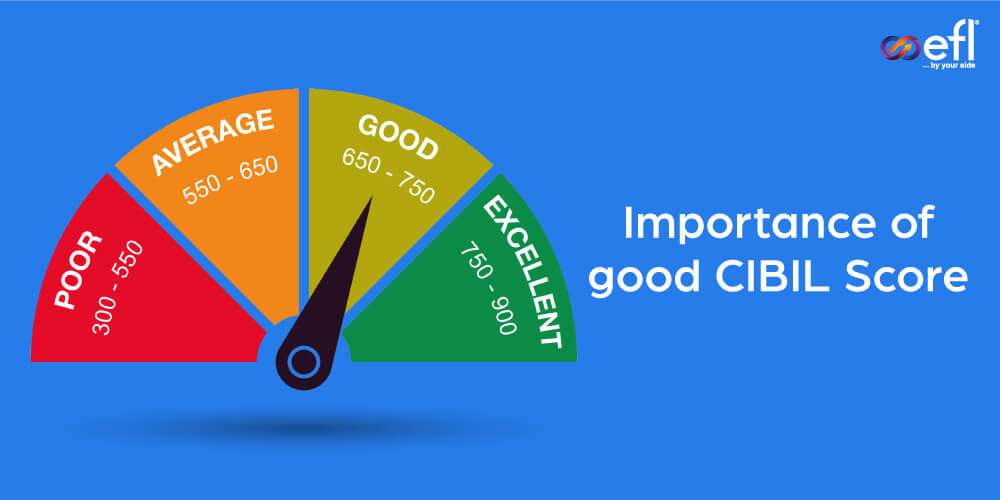By admin | March 2, 2020
CIBIL score plays a very critical role in a businessman’s financial journey. It is a huge database of borrower information that lenders share with each other to safeguard themselves from potentially lending to defaulters.
Credit lenders rely on CIBIL score to determine if an entrepreneur is worthy of availing credit. If their CIBIL score is below average, the lenders will be hesitant to advance loans. If an individual has a score above 750, they have a better chance at getting loans with the best rates.
All financial institutions are compulsorily required to verify the CIBIL score of applicants of all financial products of credit. They check on an individual’sCIBIL score to analyze if they have ever defaulted in their financial journey in the past.
Why is a good CIBIL Score so important?
CIBIL score shouldn’t be taken lightly as it plays a crucial role in one’s financial journey. Given below is a list of things that are affected by CIBIL report:
- Loan approval Your CIBIL score shows the lender how creditworthy you are. If you have a good CIBIL score, the lender won’t hesitate before allowing a loan. But a bad CIBIL score might lead to loan rejection as the lender is uncertain of your creditworthiness.
- Interest rates Higher the CIBIL score, lower the interest rates. If you keep a good CIBIL score, you have a better chance at getting lower rate of interest on your loans and credit cards.
- Approval for higher limits A good or high CIBIL score will ensure that you get approval for higher limits from the bank or financial institutions.
Other benefits of a good CIBIL Score:
- Avail pre-approved loans
- Loans with longer tenure
- Quicker approval on credit applications
- Negotiation power
- Discount on loan processing fees and other charges
Factors that affect a CIBIL Score:
There are several factors that affect a businessman’s CIBILscore:
- Defaulting on payments: This is a major factor that impacts numerical CIBIL score adversely. Repayment behaviour, whether good or bad, is reported to CIBIL and this will be documented in the report and will reflect in the report. This information is important for lenders who are trying to determine your creditworthiness.
- Comments in a CIBIL report: CIBIL reports contain remarks and observations by previous lenders. Financial institutions sometimes offer you the option to “settle” your loan for a slightly smaller amount than all of your EMIs combined, or offer interest rate reductions, etc. to help you clear your debt.If there is any indication of loans being “written off” or “settled”, or amounts being paid after the due date, banks take these as warning signs and will reject the loan application.
- Defaulter list matching: Banks and financial institutions maintain details like the name, age, address, current employment, and others about individuals who have defaulted on their payments. If the details you have submitted match with any of the defaulter’s details, you will be rejected a loan before the bank even checks your CIBIL rating.
- Standing guarantor on a defaulted loan: A guarantor is considered to be as responsible for loan repayment as the borrower. If you have stood guarantor to a loan that has been defaulted, this will affect your CIBIL score and will be reported negatively.
- Over-borrowing: If you have availed too many loans in the previous year, regardless of whether you were able to repay them or not, banks will most likely not approve your loan.Your record might be neat,but you will be judged as a risky applicant who can default at any time.
- Inadequate tax-paying history: Banks or NBFCs generally tend to accept applications from those who have been actively filing income tax for at least two years prior to the application. It is easier to assess the creditworthiness of such individuals as there is an existing record apart from CIBIL.
- How much you owe to your lender: The credit utilization accounts to 30% of your credit score. The credit utilization is balance outstanding on all your credit cards as a percentage of your total credit limit on all your credit cards. If you have utilized more than 30% of your credit, your profile is considered to be risky.
- Length of credit history: The extent of time you have been using credit for is also an important factor that affects 15% on your credit score. The longer the credit history, the better your score.
- Frequency of credit checks: When granting a loan, lenders run inquiries on your CIBIL reports. A lot of CIBIL inquiries and a lot of lenders assessing your credit records tend to reduce your credit rating.
If you have a CIBIL score more than 600, you might be eligible to avail EFL loans. EFL offers different loans to fulfil your business finance, working capital or machinery upgrade needs. The interest rates are curated according to the customer’s profile. Flexible repayment options are available. The best part is the swift and hassle-free process of disbursal!




